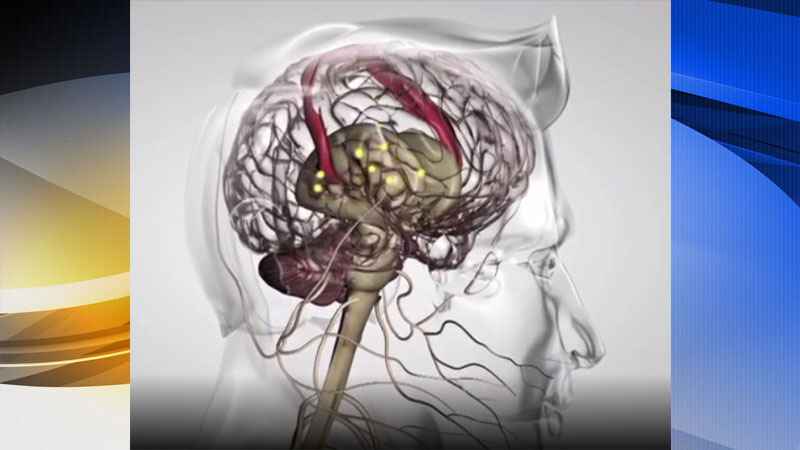New study shows some COVID-19 patients end up with damage to brains
[anvplayer video=”5006854″ station=”998122″]
A new study shows some COVID-19 patients end up with damage to their brains, shedding new light on how the virus impacts the human body.
"I think it is critically important that we study this population properly," said Dr. Avi Nath, the lead researcher on this study and clinical director of the National Institutes of Neurological Disorders and Stroke. "We hope these results will help doctors understand the full spectrum of problems patients may suffer so that we can come up with better treatments."
Some COVID-19 patients report non-respiratory symptoms after contracting the virus, including headaches, delirium and mental fog.
Nath and his team at the National Institutes of Health used special, high-powered brain scans to look at the brains of people who died after contracting COVID-19. This was the first study of its kind in the country, published in the New England Journal of Medicine.
The researchers examined the brains of 19 people who died anywhere from several hours to two months after reporting symptoms. They ranged in age from five to 73 years old.

"Some were found dead in bed by their partner or spouse, some were found dead in a nursing home, one guy was found dead on a subway," Nath explained.
Nath said he was surprised to find almost all of the patients had abnormalities in the brain.
He said bright spots visible on their brain scans represented areas of inflammation. Dark spots represented bleeding in the brain, which Nath said was likely a result of blood vessels leaking.
"If these patients had survived, let’s say, could they have had long-term consequences? And the answer is yes. If you’ve got that kind of pathology in the brain, you’ve got damage to the brain," Nath explained.
Nath said he did not discover any signs of COVID-19 in the brain tissue itself, suggesting the damage was not caused by a direct viral attack on the brain, but instead came from the body’s inflammatory response to the virus.
"When I sit back sometimes and think about it, I’m just shocked at what this virus does to us," said Dr. Farha Ikramuddin, a physical medicine rehabilitation physician at M Health Fairview and assistant professor at the University of Minnesota Medical School.
Dr. ikramuddin works firsthand with so-called ‘COVID long-haulers,’ people who have mysterious, lingering symptoms long after recovering from the virus.
"Anywhere from impaired cognition such as not being able to remember things to absolute hallucinations and delirium to death. I have seen a few patients with what we can fantasmia, which is basically hallucinations of smell, so they smell things that are not there," Ikramuddin explained. "Patients do not need to be admitted to the hospital to have significant post-COVID-19 syndrome."
Ikramuddin believes it is extremely important to keep looking at the brain, in an effort to understand COVID-19 symptoms and outcomes.
The National Institutes of Health recently launched a new Neuro-COVID Project, which will allow doctors across the country to send data and specimens to a central databank/biobank, in the hopes of tracking neurological symptoms associated with the virus: